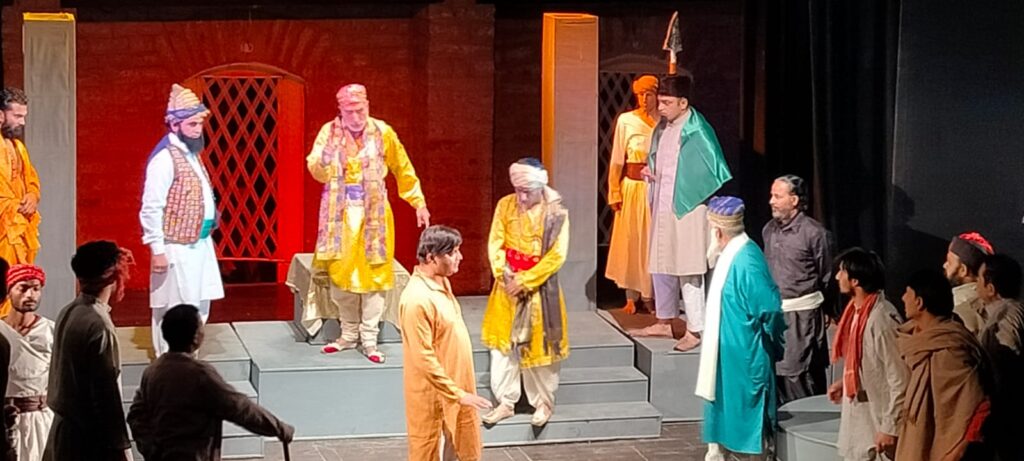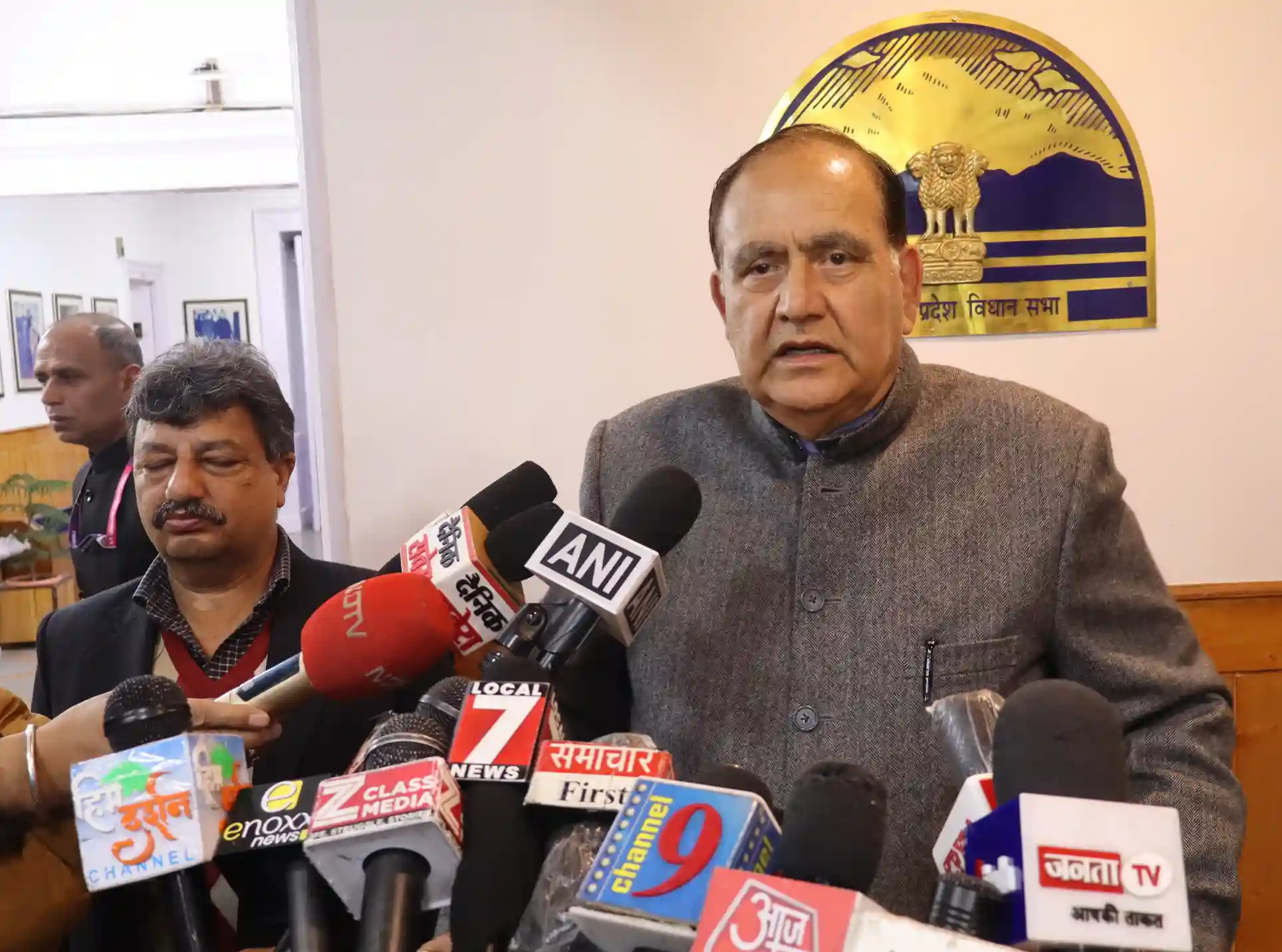“Kabira Khada Bazar Main: Theatrical Odyssey Echoing Kabir’s Wisdom; Committee Highlights Areas for Improvement
3 min read
Shimla, Dec 23 Ritanjali Hastir :
The Gaiety Dramatic Society showcased its eighth production, “Kabira Khada Bazar Main” based on the celebrated script by Bheesham Sahni, here today. The play was directed by Dheeraj Raghuvanshi and presented by Gaiety Theatre Repertory.
The play is based on the life of Saint Kabir. It explores how the ordinary man’s thoughts and intellect transformed him into a mysterious poet who challenged injustice, prejudice, and blind beliefs. The narrative delves into Kabir’s life, addressing various issues such as caste discrimination, religious and social divisions, and the oppressive practices prevailing in society. Kabir’s verses not only highlight the divisions between Hindus and Muslims but also critique the atrocities committed by the rich and powerful. The play vividly portrays Kabir’s journey and his decision to renounce his religion and embrace a universal entity that everyone can love and worship. Kabir’s teachings shed light on the divisions between communities, the tyranny of the affluent, and the prevailing political orthodoxy in society. Despite being written over 600 years ago, Kabir’s words resonate today, as casteism and religious intolerance continue to plague society.
The first show managed to get a house full thanks to the long weekend and festival season crowds from the surrounding cities. However, the lengthy play of one hour and 45 minutes was taxing fir the audience.
“After witnessing the grand rehearsal, it was unmistakably evident that the play suffered from notable weaknesses and excessive length. Despite the explicit directive to trim the duration to 1 hour and 20 minutes, the play persisted for 1 hour and 45 minutes. Several actors displayed subpar performances, contributing to an overall detrimental impact on the rehearsal day, leading to the subsequent cancellation and postponement of shows. The committee had outlined specific areas for improvement, providing the troupe with an opportunity to address the highlighted shortcomings. However, the efficacy of their efforts ultimately rested entirely on their discretion,” conveyed S.N. Joshi, a GDS committee member.
Contrastingly, Professor Kamal Sharma, another committee member, expressed, “I perceived an imbalance in the play’s preparation, with an emphasis on part rehearsals rather than comprehensive run-throughs. The play failed to make a significant impact due to the main protagonist’s inclination towards subdued dialogue delivery, resulting in perceived overacting by other cast members. There seemed to be minimal correlation between scene executions, and it appeared that the play had more directors than actors. Regrettably, the overall sequence lacked coherence; it was difficult to figure out exactly what was happening and why at such a stretch.”
Despite the lengthy production, standout performances by actors like the blind beggar and Dayal Prasad, who portrayed the father, showcased exceptional acting skills, surpassing his directing abilities. Loe also captivated the audience with her performance. However, the weak portrayal of the emperor’s gestures left confusion in the end, seemingly accepting the ideology and then swiftly punishing it.
The unfortunate character met his demise at the hands of a hunter, and his lifeless body was dispatched to the village in a scene transition. However, a peculiar inconsistency arose during the fadeout as the soldiers carried his body away from the same spot where he had fallen victim to the fatal blow. Strangely, the character’s tambourine and stick remained exactly where they had been dropped in the previous scene, only to be later carried away by the protagonist. This discrepancy in the sequence raised questions about the play’s attention to detail and continuity, impacting the overall coherence of the production.
In conclusion, there exists significant room for improvement in postures and trims, as emphasized by both committee members. It is essential to recognize that every day is not Sunday, and one cannot consistently expect a floating population to yield houseful results. Despite the audience’s anticipation for a meaningful turn of events, the play failed to deliver, and the curtain fell without much action.
In the end, to encapsulate the essence, as poet Kabir aptly stated, “कबीरा खड़ा बाज़ार में, मांगे सबकी खैर! ना काहू से दोस्ती, न काहू से बैर।” There is a need to adopt a more realistic approach, considering the responsibility that comes with being funded by public taxes. Instead of responding with aggression or misbehavior when shortcomings are pointed out, the protagonist should embrace a constructive and accountable attitude, recognizing the importance of delivering quality performance in service to the audience and the community.






